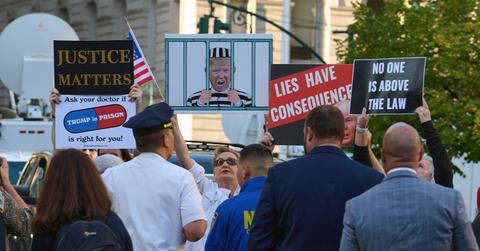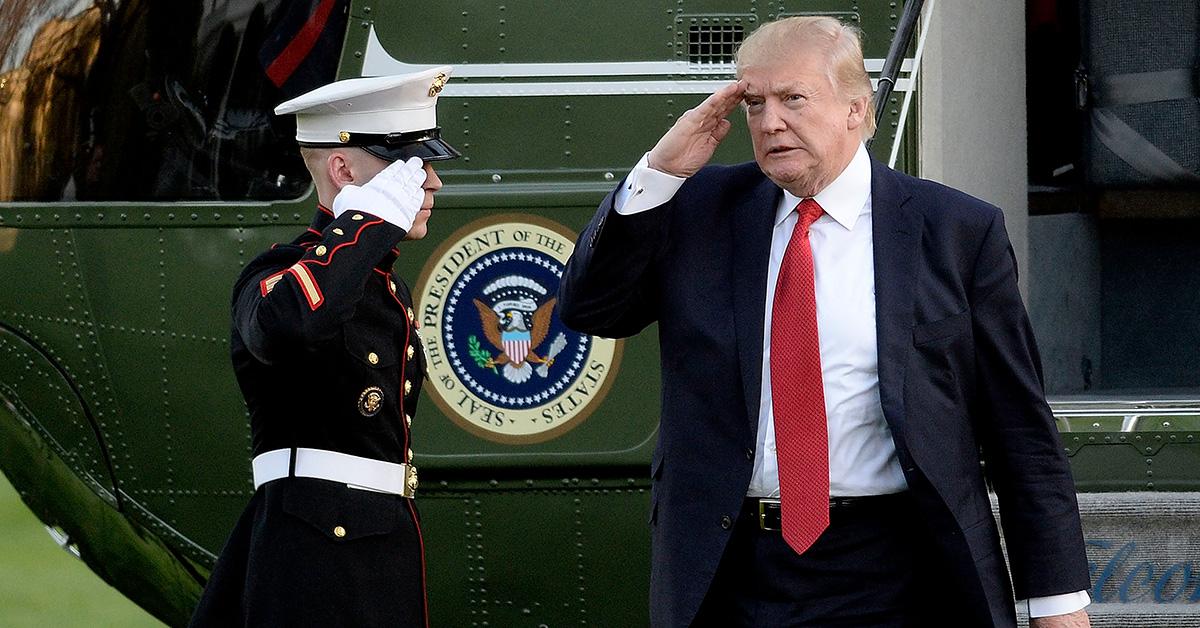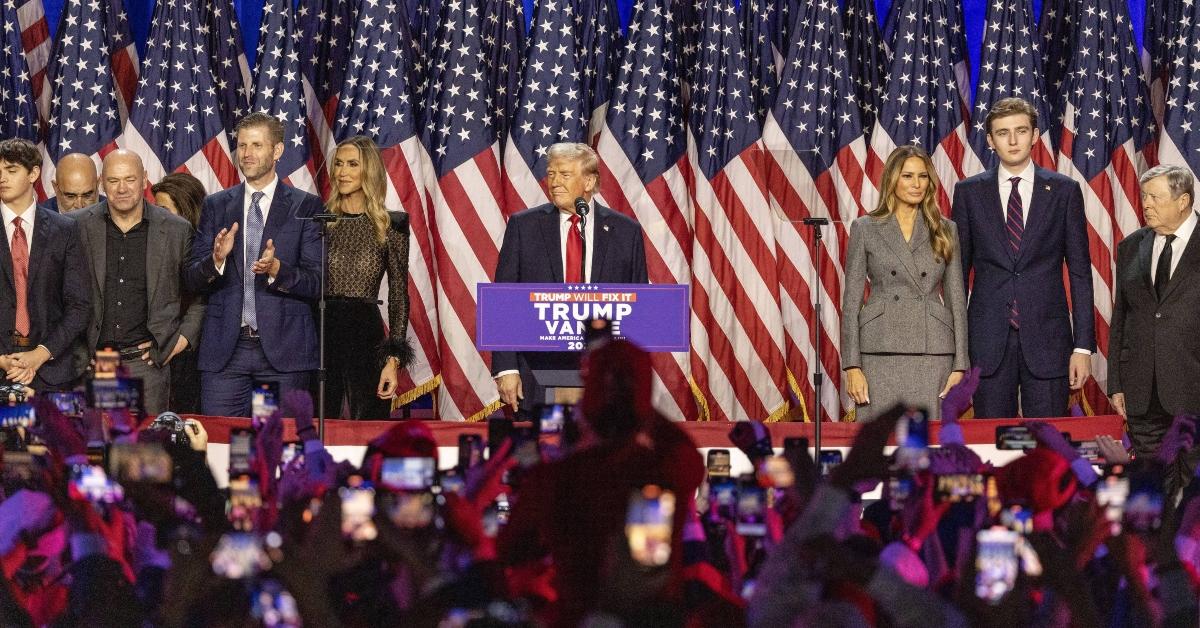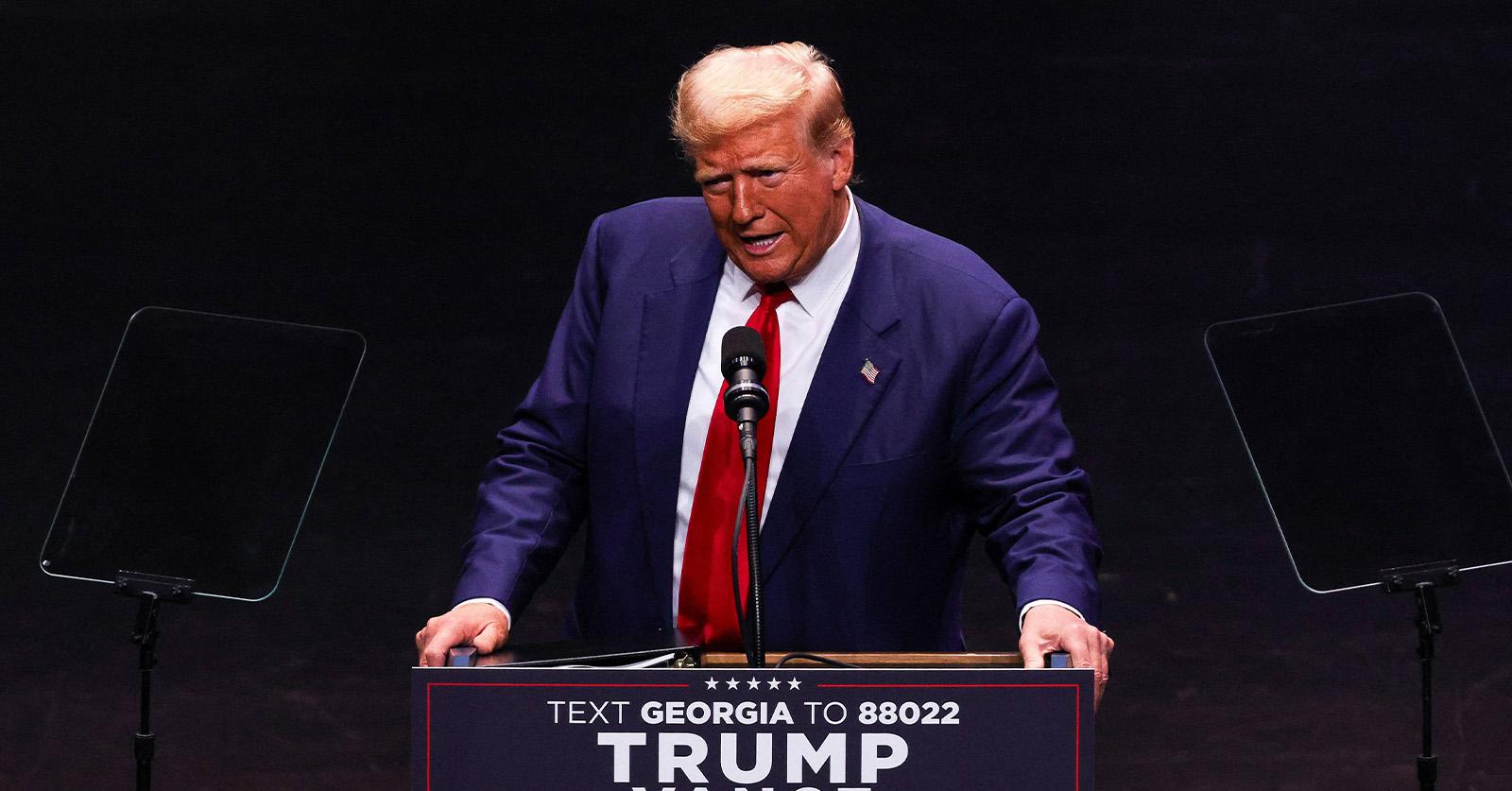With 34 Felony Convictions, Why Is Trump Going to the White House and Not to Jail?
Trump is in a unique position, to say the least.
Published Nov. 6 2024, 11:52 a.m. ET

The 2024 election cycle has been full of firsts — and some almost firsts — both negative and positive. We got the first openly transgender person elected to Congress, the first time two Black women will serve in the Senate at the same time, and of course, the first convicted felon to win the presidential race and imminently hold the nation's highest office.
Indeed, Donald Trump is both the first convicted felon to be elected president and the first ex-president to be convicted of a felony. If you're still wondering what's going on with all that, you're not alone. The Nov. 5 election left many wondering what had become of Trump's legal woes.
So, why is he headed to the White House and not prison? Just like everything else in politics, it's complicated.

Why isn't Donald Trump in jail?
To understand why Donald Trump isn't in jail, one must first understand exactly what he's been convicted of in the first place — after all, the president-elect has had a plethora of allegations against him over the years.
Aside from the pending federal case against him for attempting to overturn the 2020 election, as well as his alleged mishandling of classified documents, Trump has been accused and convicted on 34 counts of "falsifying business records to cover up a hush money payment" made to Stormy Daniels during the 2016 campaign trail, per CNN.
Though he denied the claims, he was ultimately proven guilty earlier in 2024 — and since then, we've been at a bit of a standstill. Ahead of the 2024 election, the presiding judge in New York held off on issuing a sentence to avoid the appearance of election interference.

Trump is set to receive his sentence on Nov. 26 — but he may never serve it.
Now that the election is over, with Trump clinching the victory for his second term, the president-elect is set to receive his sentence on Nov. 26 — however, with several variables in effect, it remains to be seen whether he will be required to serve his sentence at all.
Per CNN, the presiding judge, Judge Merchan, has set a personal deadline of Nov. 12 for his decision on whether or not to wipe away Trump's conviction following the Supreme Court's historic decision to grant the president legal immunity. If he does decide to proceed with sentencing, however, Trump could be facing up to four years in prison, though his lawyers are expected to pursue an appeal.
Even if Trump doesn't face jail time, Judge Merchan could sentence him to probation, house arrest, community service, or a hefty fine, all of which could potentially complicate his impending inauguration.

And if you're wondering whether Trump can just pardon himself once he takes office, it doesn't work that way.
While his other legal cases, like the ones pertaining to the 2020 election, are federal, his hush-money convictions are part of a state case, meaning he won't have jurisdiction over them.